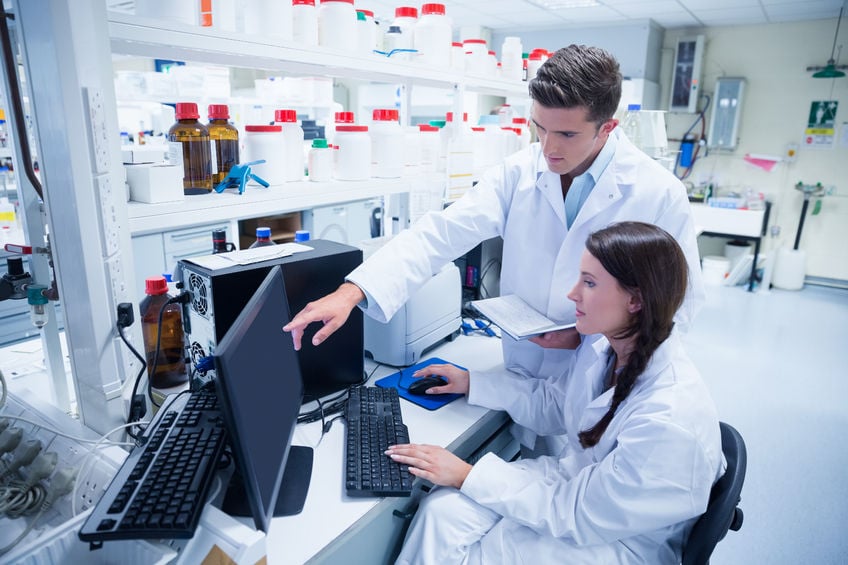As I enter into what is likely the final year of my PhD in the Biomedical Sciences program at the University of California San Diego, I regularly find myself contemplating the last four years. Although my experience has been a generally positive one, it has also been filled with its share of, “If I had only known sooner!” moments.
Although I hope anyone could find the insight I’ve gained helpful, if you’re considering applying to graduate school, beginning graduate school this fall, or in the earlier stages of your PhD, this piece is especially for you.
Choosing your field:
Before you consider applying to graduate school, think back to moments that have fed your love of science. For me, taking a developmental biology class in college ignited my interest in more translational biological research. Is there a topic in science that you can’t get enough of—that you could talk about for hours? Think back to the scientific papers, or even popular science articles, that stood out to you.
Ultimately, take time to brainstorm how your field of interest could lead you to what you would consider a desirable career. Again this is highly subjective, but for example, if you love evolutionary biology but hope to one day hold a highly technical job in an industry setting that calls for experience with assays you may never be exposed to in an evolutionary biology laboratory, your career and research goals may not be well-matched.
My advice is to follow what you love first and foremost, but to also ensure that you will have job prospects at the end of your PhD.
Choosing your program:
What type of research setting calls to you? I chose UCSD Biomedical Sciences because it is an “umbrella program,” where you are exposed to a huge range of research topics and have the opportunity to rotate in a vast number of diverse laboratories. This large “umbrella” allowed me, someone who wasn’t sure what she wanted to focus on, to work through my options and seek out the lab that fit best.
Choosing a lab:
Once you’ve chosen a program you’ll need to choose a thesis lab. This is no small undertaking as it’s where you’ll be spending the remaining years of your PhD. Sounds a bit intimidating, doesn’t it? Here some questions (for your PI as well as members of the lab) that may make this choice more clear:
- Is there enough funding for you to join the lab? If so, for how many years?
- Does the PI expect for you to apply for your own funding?
- What is the average time it takes for PhD students to graduate?
- Who in the lab would initially train you and act as your mentor as you get up and running in the lab?
- What does the PI expect from you before you can graduate? Some PIs have expectations for how many first author publications the student must have, etc.
- What projects will you work on?
- What do people do once they leave the lab?
- This is a question for lab members: What is the PI's mentorship style? Is he/she hands-off? Are you expected to meet frequently?
Taking time to communicate with the PI, as well as lab members, before joining a lab is essential for you to feel secure in your choice.
Applying for grants:
The NSF and NIH are well-known governmental funding sources:
- National Science Foundation Graduate Research Fellowship Program
- National Institutes of Health predoctoral training fellowships and awards
…but there are non-governmental sources available as well!
Make the most of your environment:
At almost any university or research institution there is an abundance of opportunities that will allow you to further pursue your academic and career-related interests. Make the most of what is offered to you! I can’t count how many seminars I found out about after the fact, or how many career panels I would have loved to attend but missed due to preventable scheduling conflicts.
For more academic endeavors, look up the variety of seminars and lecture series offered at your institution and then request to be on their mailing list. At UCSD there’s at least one seminar a day, and before I was on any mailing lists I would miss out! I by no means attend even the majority of seminars offered, but every so often I’ll receive an email about a lecture by a visiting professor whose work piques my interest.
For career building, one word: network. Attend networking events not only hosted by your institution, but in your general region. One great resource is the Life Science Network, free to anyone currently working in the life sciences. Career panels are also excellent forums to ask questions and get in contact with people whose jobs look interesting to you. No career panels at your university? Plan one!
Prioritize, prioritize, prioritize…
Throughout my PhD I’ve found that there are always so many things to do and so many places to be. How do you choose? When is an experiment worth doing and when is it just wasted time? To avoid a sense of aimlessness that most graduate students (myself included) experience at some point during their PhD, prioritization is key. If you already have an excellent way of prioritizing, keep it up! If not, here are a few suggestions:
To keep track of my lab work, I divide the experiments that I hope to do (or am contemplating doing), into 3 sections:
- Experiments that need to be done as soon as possible (usually necessary for a grant, a paper under review, etc.)
- Experiments that should be done in the next 2-3 months
- Low priority experiments that I still haven’t deemed necessary. These are the experiments I’ll spend more time discussing with my PI or lab mates before diving in.
For my life outside of the lab, I have large desk calendar where I keep track of personal appointments as well as career building events. For me, keeping my life in lab at least somewhat separate from my personal life it key, as I find it overwhelming to look at all at once.
Between my PhD, making time for networking and career building events, pursuing freelance opportunities (like here at The Q!), and trying to have a social life, it can feel like a lot. Being organized and learning how to prioritize has allowed me to accomplish most of what I’ve set out to do.
Although to some it may sound ridiculous, try to enjoy your PhD. Yes, this can be a stressful time, but it’s a time when you’ll grow as a scientist (and human!) and learn what you care most about. I’ve learned that I don’t want to be in academia, or industry, and am on a completely different path than the one I came into graduate school ready to pursue. That being said, I truly value the time I’ve spent discovering what I love and all that I’ve learned in the process.
Quartzy is the world’s No. 1 lab management platform. We help scientists easily organize orders, manage inventory, and save money. We’re free and always will be. Visit Quartzy.com or reach out at info@quartzy.com.
Interested in writing for The Q? Send us an email!
Share this:
Tags: advice, career, laboratory, academia, grants

Samantha Jones
Samantha Jones grew up in the Boston area and attended Vassar College in New York for undergrad, where she studied biology and competed on the swim team. She is currently a fourth year Biomedical Sciences PhD student at UC San Diego studying the role of RNA in neural development and working toward a future in science writing. Check out her website for an up-to-date look at what she’s working on, or her Twitter page for all things science.




